Ditapis dengan
E-book The Kingdom of God and the Poor
This study investigates the specific Contextual Bible Study among particular groupsof poor Christians in the Southwestern part of Tanzania. The main objective isto research and discuss the relationships between text and context when poorChristians undertake Contextual Bible Study. To this end, I use the InterreligiousCommunity Bank Bible Study groups (IR-VICOBA)1. IR-VICOBA groups aregroups of …
- Edisi
- -
- ISBN/ISSN
- 9783666503658
- Deskripsi Fisik
- 242 hlm
- Judul Seri
- -
- No. Panggil
- 230.041 EDW t
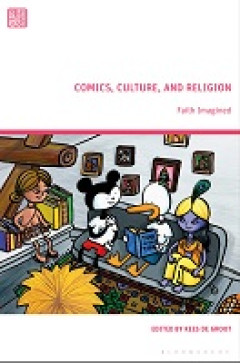
E-book Comics, Culture, and Religion
This open access book offers an overview of the relations between comics and religion from the perspective of cultural sociology. How do comics function in religions and how does religion appear in comics? And how do graphic narratives inform us about contemporary society and the changing role of religion? Contributing scholars use international examples to explore the diversity of religions, s…
- Edisi
- -
- ISBN/ISSN
- -
- Deskripsi Fisik
- 263 hlmn
- Judul Seri
- -
- No. Panggil
- 201.76 ASP c
E-book Wildlife Ecology : An Environmental Study Unit for 5th - 8th Graders
This unit is about wildlife ecology, and the ways people use information gathered by wildlife ecologists. Students will learn why wildlife ecology is important and how data gathered by ecologists is used to understand and make decisions about the environment. They will develop research skills in a reallife context by going “out into the field” and making first-hand observations of wildlife …
- Edisi
- -
- ISBN/ISSN
- -
- Deskripsi Fisik
- 69 hlm
- Judul Seri
- -
- No. Panggil
- 590 ROS w
Alfonsus de Liguori 1696 - 1787 : Pujangga Gereja - Calon Penghuni Neraka
"Kasihan kau, Bapa tua, gara-gara ajaranmu, kau akan masuk neraka" Begitulah tanggapan yang hidup sezaman dengan Santo Alfonsus tentang diri dan ajarannya. Tetapi, apa yang terjadi? Alfonsus tidak masuk neraka. Sebaliknya, ia digelar Santo dan Pujangga Gereja justru karena ajaran dan teladan hidupnya. "Semua orang dipanggil untuk menjadi kudus," kata Alfonsus 250 tahun yang lalu. Ia dapat meno…
- Edisi
- -
- ISBN/ISSN
- 9792106049
- Deskripsi Fisik
- 184 hlm; 13.5 x 20.5 cm
- Judul Seri
- -
- No. Panggil
- 922.1 JON a
E-book The Museum Accessibility Spectrum : Re-imagining Access and Inclusion
Central to the practice of the modern museum sector are the principles of access, inclusion, diversity, sustainability, and community participation (ICOM, 2022). As the curators of our cultural and social histories, the heritage sector is morally and legally required to provide reasonable adjustments to ensure equitable access or all people. The dictionary definition of access is the me…
- Edisi
- -
- ISBN/ISSN
- 9781003382713
- Deskripsi Fisik
- 313 hlm
- Judul Seri
- -
- No. Panggil
- 069 EAR t
E-book Egyptian Things : Translating Egypt to Early Imperial Rome
The Temple of Dendur stands grandly in New York’s Metropolitan Museum of Art (fig. 1). Reflecting pools and cool tan-marble floors stylishly evoke the Nile and its surroundings; an enormous semi-translucent ceiling remains a relic of 1970s mod-ernism; a vast wall of glass looks out to Central Park and E. Eighty-Fourth Street. All frame the Egyptian temple’s relocation to the former Sackler …
- Edisi
- -
- ISBN/ISSN
- 9780520402195
- Deskripsi Fisik
- 261 hlm
- Judul Seri
- -
- No. Panggil
- 732.8 KEL e
E-book Disability in industrial Britain : A cultural and literary history of …
On 5 September 1908, Frank Eaves, a collier from Tonypandy in the Rhondda Fawr valley, south Wales, stood before Judge Bryn Roberts at Pontypridd County Court. Eaves had met with an accident while working underground in Blaen-clydach Colliery in 1906, when a stone of half a hundredweight had fallen on his foot. He had not worked since that time and had been in receipt of compensa-tion from the …
- Edisi
- -
- ISBN/ISSN
- 9781526124326
- Deskripsi Fisik
- 288 hlm
- Judul Seri
- -
- No. Panggil
- 941 BOH d
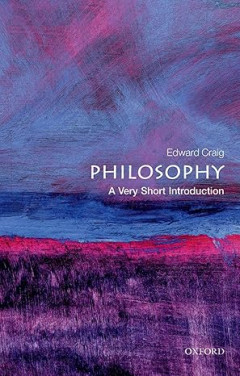
E-book Philosophy: A Very Short Introduction
How ought we to live? What really exists? How do we know? This book introduces important themes in ethics, knowledge, and the self, via readings from Plato, Aristotle, Descartes, Hegel, Darwin, and Buddhist writers. It emphasizes throughout the point of studying philosophy, explains how different areas of philosophy are related, and explores the contexts in which philosophy was and is studied.
- Edisi
- -
- ISBN/ISSN
- 9780192854216
- Deskripsi Fisik
- 145 halaman
- Judul Seri
- -
- No. Panggil
- 101 CRA p
E-book The Development of Neolithic House Societies in Orkney
Orkney is an archipelago that lies off the rugged northeastern coast of Caithness in northern Scotland (Fig. 1.1). It is separated from the Scottish mainland by the volatile Pentland Firth, one of the roughest and unpredictable stretches of water in the world. On calm summer days the southern isles of Orkney appear colourful, tranquil and e…
- Edisi
- -
- ISBN/ISSN
- 9781909686908
- Deskripsi Fisik
- 593 hlm
- Judul Seri
- -
- No. Panggil
- 930.14 RIC t

E-book Rethinking the Andes–Amazonia Divide : A cross-disciplinary exploration
Maps in this book were reproduced by Paul Heggarty from maps provided by chapter authors, by converting them into a GIS (Geographic Information System) database, collated and enriched for South America for the purposes of this book. All data used on the maps are thus geo- referenced – set to actual latitude and longitude coordi-nates – as precisely as possible. Individual p…
- Edisi
- -
- ISBN/ISSN
- 9781787357358
- Deskripsi Fisik
- 421 hlm
- Judul Seri
- -
- No. Panggil
- 980 PEA r
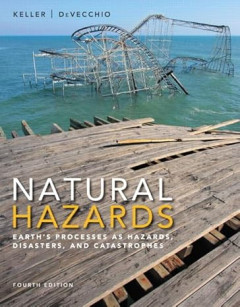
E-book Natural Hazards: Earth's Processes As Hazards, Disasters, and Catastro…
- Edisi
- -
- ISBN/ISSN
- 9780321939968
- Deskripsi Fisik
- 576 halaman, ilus.
- Judul Seri
- -
- No. Panggil
- 363.34 KEL n
- Edisi
- -
- ISBN/ISSN
- 9780321939968
- Deskripsi Fisik
- 576 halaman, ilus.
- Judul Seri
- -
- No. Panggil
- 363.34 KEL n
E-book Samuel Johnson's Lives of the Poets : Ethical Literary Criticism
The present study of the Lives of the Poets is designed to show that Johnson’s value judgements about literature lead to ethical literary crit-icism that pertains to human problems affecting our daily life and world crises. In his Dictionary, Johnson defines ethics as “the doctrine of morality; a system of morality.”1 While morality and…
- Edisi
- -
- ISBN/ISSN
- 9783031618420
- Deskripsi Fisik
- 177 hlm
- Judul Seri
- -
- No. Panggil
- 928.21 TOM s
E-book Understanding Basic Music Theory
People were talking long before they invented writing. People were also making music long before anyone wrote any music down. Some musicians still play "by ear" (without written music), and some music traditions rely more on improvisation and/or "by ear" learning. But written music is very useful, for many of the same reasons that written words are useful. Music is easier to study and share if …
- Edisi
- -
- ISBN/ISSN
- -
- Deskripsi Fisik
- 241 hlm
- Judul Seri
- -
- No. Panggil
- 780.72 SCH u
E-book The Family Firm : Monarchy, Mass Media and the British Public, 1932-53
Addressing a gathering of delegates and journalists at the annual conference of the University of Nottingham’s Labour Federation on the evening of 6 January 1934, the barrister and MP for Bristol East, Sir Stafford Cripps, publicly bolstered his reputation as an outspoken radical who was committed to a programme of state-led socialism when he criticized what he saw as …
- Edisi
- -
- ISBN/ISSN
- 9781909646957
- Deskripsi Fisik
- 448 hlm
- Judul Seri
- -
- No. Panggil
- 902 OWE t
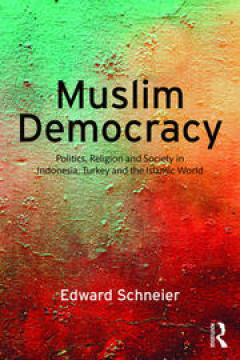
E-book Muslim Democracy: Politics, Religion and Society in Indonesia, Turkey …
Muslim Democracy explores the relationship between politics and religion in forty-seven Muslim-majority countries, focusing especially on those with democratic experience, such as Indonesia and Turkey, and drawing comparisons with their regional, non-Islamic counterparts.? Unlike most studies of political Islam, this is a politically-focused book, more concerned with governing realties than ide…
- Edisi
- -
- ISBN/ISSN
- 9781138928121
- Deskripsi Fisik
- 279 halaman
- Judul Seri
- -
- No. Panggil
- 297.27 SCH m
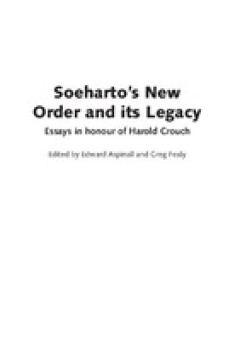
E-book Soeharto's New Order and its Legacy: Essays in honour of Harold Crouc
Indonesia’s President Soeharto led one of the most durable and effective authoritarian regimes of the second half of the twentieth century. Yet his rule ended in ignominy, and much of the turbulence and corruption of the subsequent years was blamed on his legacy. More than a decade after Soeharto’s resignation, Indonesia is a consolidating democracy and the time has come to reconsider the p…
- Edisi
- -
- ISBN/ISSN
- -
- Deskripsi Fisik
- 224 halaman
- Judul Seri
- -
- No. Panggil
- 320.9598 ASP s
The dBase Language Reference
dBase has grown in the past few years into a powerful and popular database language. Hundred of thousands of PC users have automated their database management tasks using dBase. And as dBase has grown in popularity, various software firms have produced products compatible with the dBase language. These competing products have added unique features of their own.
- Edisi
- -
- ISBN/ISSN
- 0078816432
- Deskripsi Fisik
- xxxvi + 1033 hlm; 19 x 23 cm
- Judul Seri
- -
- No. Panggil
- 005.262 JON t
Howl's Moving Castle
Sophie has the great misfortune of being the eldest of three daughters, destined to fail miserably should she ever leave home to seek her fate. But when she unwittingly attracts the ire of the Witch of the Waste, Sophie finds herself under a horrid spell that transforms her into an old lady. Her only chance at breaking it lies in the ever-moving castle in the hills: the Wizard Howl's castle. To…
- Edisi
- -
- ISBN/ISSN
- 0060298812
- Deskripsi Fisik
- 10,5 x 17 cm, 329 halaman
- Judul Seri
- -
- No. Panggil
- 823 JON h
E-book Cambridge IGCSE Biology Coursebook
This book has been written to help you to do well in your Cambridge International Examinations IGCSE Biology examination. We hope that you enjoy using it. The book can also be used with the Cambridge O level Biology syllabus. There are quite a lot of definitions in the IGCSE syllabus that you need to learn by heart. These are all in this book, at appropriate points in each chapter, inside boxes…
- Edisi
- 3rd ed
- ISBN/ISSN
- 9781107614796
- Deskripsi Fisik
- 350 hlm
- Judul Seri
- -
- No. Panggil
- 570 JON c
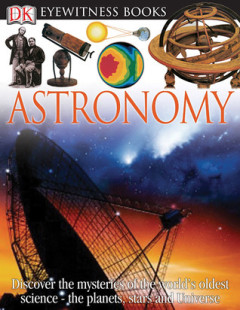
E-book Eyewitness: Astronomy
Looks at the history of astronomy, identifies important astronomers, and summarizes what is known about the Sun, Moon, planets, and stars.
- Edisi
- -
- ISBN/ISSN
- 9780756637675
- Deskripsi Fisik
- 76 halaman, ilus.
- Judul Seri
- -
- No. Panggil
- 520 LIP e

E-book Eyewitness: Eagles & Birds of Prey
Get a bird's eye view of the amazing world of raptors--from the majestic falcon, hawk and eagle to the stealthy owl and the formidable vulture. This fascinating overview examines the development, anatomy, mating, and nesting habits of birds of prey as well as their techniques for stalking, catching, and killing their quarry. Also discussed is the importance of the protection raptors in todays …
- Edisi
- -
- ISBN/ISSN
- 9780789458605
- Deskripsi Fisik
- 64 halaman, ilus.
- Judul Seri
- -
- No. Panggil
- 568 PAR e
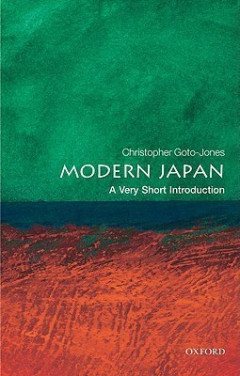
Ebook Modern Japan: A Very Short Introduction
Japan is arguably today's most successful industrial economy, combining almost unprecedented affluence with social stability and apparent harmony. Japanese goods and cultural products--from animated movies and computer games to cars, semiconductors, and management techniques--are consumed around the world. In many ways, Japan is an icon of the modern world, and yet it remains something of an en…
- Edisi
- -
- ISBN/ISSN
- 9780199235608
- Deskripsi Fisik
- 177 halaman
- Judul Seri
- -
- No. Panggil
- 952 GOT m 002858-eB-0122

E-book Polygamy in islam
Allah alone, the All-Merciful, deserves all praise and thanks, Lord of the universe, its Creator and Sustainer. Blessings and peace be upon the last of the prophets and messengers, Muhammad, his family and Companions and all those who follow in his footsteps till the end of time. Polygamy in Islam is a favourite topic for the critics of Islam and its message. The so-called secular and We…
- Edisi
- -
- ISBN/ISSN
- 9960953300
- Deskripsi Fisik
- 108 halaman
- Judul Seri
- -
- No. Panggil
- 2X4.315 PHI p
E-book Jamaica Making : The Theresa Roberts Art Collection
his exhibition at the historic Victoria Gallery and Museum, Liverpool, comprises almost entirely of art works in the collection of Theresa Roberts, who is founder and owner of the Jamaica Patty Co. restaurant, based in Covent Garden, London.Theresa Roberts was born in Jamaica to parents who emigrated to the United Kingdom as part of the ‘Windrush Generation’: those who were invited by Briti…
- Edisi
- -
- ISBN/ISSN
- 9781800855472
- Deskripsi Fisik
- 96 hlm
- Judul Seri
- -
- No. Panggil
- 708 ROB j
E-book Comics Beyond the Page in Latin America
ver the past two decades Latin America has seen an expansion in the publication and consumption of comics. This renaissance is benefiting from transnational dialogues and exchanges: in 2017, for example, the publishing house :e(m)r;, based in Rosario, Argentina, produced a groundbreaking compilation of comics by artists from over 10 Latin American …
- Edisi
- -
- ISBN/ISSN
- 9781787357549
- Deskripsi Fisik
- 246 hlm
- Judul Seri
- -
- No. Panggil
- 741.5 AGU c
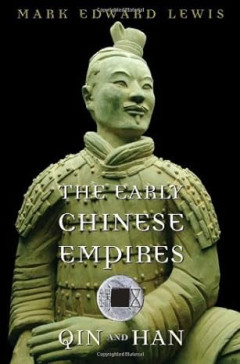
E-book The Early Chinese Empires: Qin and Han
In 221 B.C. the First Emperor of Qin unified what would become the heart of a Chinese empire whose major features would endure for two millennia. In the first of a six-volume series on the history of imperial China, Lewis highlights the key challenges facing the court officials and scholars who set about governing an empire of such scale and diversity.
- Edisi
- -
- ISBN/ISSN
- 9780674057340
- Deskripsi Fisik
- 334 halaman
- Judul Seri
- -
- No. Panggil
- 931 LEW t
E-book Encyclopedia Of Hinduism
ABOUT THE SERIES: 'Encyclopedia of World Religions' explores the major religions of the world, emphasising the living faiths & their background. It provides access to the theological concepts, personalities, historical events, institutions, and movements that helped shape the history of each religion and the way it is practiced.
- Edisi
- -
- ISBN/ISSN
- 9780816054589
- Deskripsi Fisik
- 593 halaman
- Judul Seri
- -
- No. Panggil
- 294.5 JON e
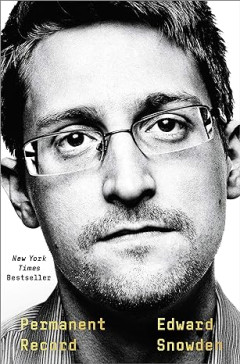
E-book Permanent Record
Permanent Record by Edward Snowden is an autobiography where he reveals how he became the most wanted man in the world after leaking more than a million classified documents from the National Security Agency.
- Edisi
- -
- ISBN/ISSN
- 9781250237231
- Deskripsi Fisik
- 352 halaman
- Judul Seri
- -
- No. Panggil
- 920 SNO p
E-book Language : Its Structure and Use
Some dictionaries include language names among their entries, and you’ve probably seen lists that provide information about the number of speakers of various languages. When the U.S. Census Bureau compiles its census data each decade, it asks residents what language they speak and publishes that information. At the United Nations, most countries are represented, and their ambassadors must kno…
- Edisi
- 5th ed.
- ISBN/ISSN
- 9781413030556
- Deskripsi Fisik
- 611 hlm
- Judul Seri
- -
- No. Panggil
- 400 FIN l
E-book Connecting Continents : Archaeology and History in the Indian Ocean World
equently missing from this burgeoning discourse, however, are contributions by archaeologists, and historical archaeologists in par-ticular,6 as well as conscious attempts to study this region’s past from an interdisciplinary perspective. A recent special edition of the journal Slavery and Abolition demonstrates that some historians are increas-ingly aware …
- Edisi
- -
- ISBN/ISSN
- 9780821446409
- Deskripsi Fisik
- 429 hlm
- Judul Seri
- -
- No. Panggil
- 930.1 SEE c
E-book Eyewitness Travel: Budapest
- Edisi
- -
- ISBN/ISSN
- 9780241263198
- Deskripsi Fisik
- 278 halaman, ilus.
- Judul Seri
- -
- No. Panggil
- 910 OLI e
- Edisi
- -
- ISBN/ISSN
- 9780241263198
- Deskripsi Fisik
- 278 halaman, ilus.
- Judul Seri
- -
- No. Panggil
- 910 OLI e
E-book History of English Literature
Little indeed is known of the origin of English Literature, though it is reasonable to assume that verse of an extemporary kind was composed long before the period of the earliest written records and that we can be certain that poetry made its appearance long before the first prose was written down. It is important from the outset to remember that the extant remains of Old English Literature ha…
- Edisi
- 5th ed.
- ISBN/ISSN
- 0195612248
- Deskripsi Fisik
- 726 hlm
- Judul Seri
- -
- No. Panggil
- 829 ALB h
E-book Handbook Cognition and Emotion
The present volume does not generally focus on the question of whether thoughts (cognition) or feelings (emotion) are more functional. Rather, this introductory material is sufficient to make the case that, typically, thoughts and feelings are seen to be distinct entities with distinct effects (e.g., Epstein, 1994). Yet, it has become increasingly apparent that cognition and emotion often inter…
- Edisi
- -
- ISBN/ISSN
- 9781462509997
- Deskripsi Fisik
- 610 hlm
- Judul Seri
- -
- No. Panggil
- 128.37 ROB h
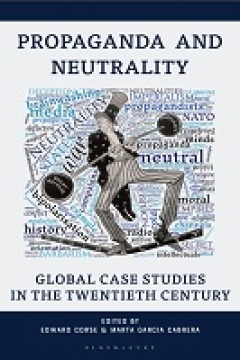
E-Book Propaganda and Neutrality: Global Case Studies in the Twentieth Century
This is the first broad-ranging, comprehensive and comparative study of the concepts of propaganda and neutrality. Bringing together world-leading and early career historians, this open access book explores case studies from the time of the First World War to the end of the Cold War in countries such as Belgium, Greece, Spain, Portugal, Ireland, Switzerland, Vichy France, USA, Argentina, Turkey…
- Edisi
- -
- ISBN/ISSN
- 9781350325531
- Deskripsi Fisik
- 329 halaman
- Judul Seri
- -
- No. Panggil
- 355.02 COR p
E-book Posthumanism and the Graphic Novel in Latin America
The emergence of the contemporary graphic novel across many regions of the world has been closely implicated with posthumanist thought. Science fiction narratives forged from multiple real and imagined cou-plings between technology, bodies and subjectivities feature prom-inently in the various competing genealogies for the medium. The French bande dessinée tradition,…
- Edisi
- -
- ISBN/ISSN
- 9781911576501
- Deskripsi Fisik
- 266 hlm
- Judul Seri
- -
- No. Panggil
- 741.5 KIN p
E-book Wood Modification in Europe : A state-of-the-art about processes, prod…
Wood modification represents an assortment of innovative processes currently being adopted in the wood protection sector. Though many aspects of these treatments are known, the fundamental influence of the process on product performance, the environment, and end of life scenarios remain relatively unknown. It is essential to integrate interactive assessment of process parameters, developed prod…
- Edisi
- -
- ISBN/ISSN
- 9788864539706
- Deskripsi Fisik
- 124 hlm
- Judul Seri
- -
- No. Panggil
- 674.8 SCH w
E-book Dictionary of World Biography
In the mid-1950s I had been puzzled that no comprehensive biographical dictionary was available in paperback and I determined to fill the gap. I wrote to Penguin Books in London/ Harmondsworth and received a thoughtful and encouraging letter from A. S. B. Glover, a classical scholar and editor. The two generally available major biographical dictionaries, Chambers’s and Webster’s, both had s…
- Edisi
- 6th. ed
- ISBN/ISSN
- 9781760462871
- Deskripsi Fisik
- 976 hlm
- Judul Seri
- -
- No. Panggil
- 920.003 JON d
E-book Emotions in Korean Philosophy and Religion : Confucian, Comparative, a…
he nature of emotions was generally criticized in the Western tradition of philosophy. This criticism of the emotional part of human nature and experience is known to have its root in the mainstream Platonic tradition. In other words, it has championed rationality/reason against emotional-ity/emotion, especially from certain scholarly standpoints. The Western dualism of reaso…
- Edisi
- -
- ISBN/ISSN
- 9783030947477
- Deskripsi Fisik
- 397 hlm
- Judul Seri
- -
- No. Panggil
- 181.119 BAK e
E-book A History of Rome to 565 A.D
The student beginning the study of Roman History through the medium of the works of modern writers cannot fail to note wide differences in the treatment accorded by them to the early centuries of the life of the Roman State. These differences are mainly due to differences of opinion among moderns as to the credibility of the ancient accounts of this period. And so it will perhaps prove helpful …
- Edisi
- -
- ISBN/ISSN
- 9781171705024
- Deskripsi Fisik
- 630
- Judul Seri
- -
- No. Panggil
- 937 EDW a
E-book The Creature from Jekyll Island : A Second Look at the Federal Reserve
The New Jersey railway station was bitterly cold that night. Flurries of the year's first snow swirled around street lights. November wind rattled roof panels above the track shed and gave a long,mournful sound among the rafters. It was approaching ten P.M., and the station was nearly empty except for a few passengers scurrying to board the last Southbound of the day. The rail equipment was typ…
- Edisi
- -
- ISBN/ISSN
- 0912986212
- Deskripsi Fisik
- 611 hlm
- Judul Seri
- -
- No. Panggil
- 332.1 GRI t

Paris: The Novel
From Edward Rutherfurd, the grand master of the historical novel, comes a dazzling epic about the magnificent city of Paris. Moving back and forth in time, the story unfolds through intimate and thrilling tales of self-discovery, divided loyalty, and long-kept secrets. As various characters come of age, seek their fortunes, and fall in and out of love, the novel follows nobles who claim descent…
- Edisi
- cet. 1
- ISBN/ISSN
- 978-0-345-53076-9
- Deskripsi Fisik
- 809 hlm; 14 x 21 cm
- Judul Seri
- -
- No. Panggil
- 823 EDW p
E-book The land of footprints
Books of sporting, travel, and adventure in countries little known to the average reader naturally fall in two classes-neither, with a very few exceptions, of great value. One class is perhaps the logical result of the other. Of the first type is the book that is written to make the most of far travels, to extract from adventure the last thrill, to impress the awestricken reader with a ful…
- Edisi
- -
- ISBN/ISSN
- -
- Deskripsi Fisik
- 258 hlm; 0.5 mb
- Judul Seri
- -
- No. Panggil
- 823 WHI t
E-book The brick moon
I have no sort of objection now to telling the whole story. The subscribers, of course, have a right to know what became of their money. The astronomers may as well know all about it, before they announce any more asteroids with an enormous movement in declination. And experimenters on the longitude may as well know, so that they may act advisedly in attempting another brick moon or in re…
- Edisi
- -
- ISBN/ISSN
- -
- Deskripsi Fisik
- 381 hlm; 0.6 mb
- Judul Seri
- -
- No. Panggil
- 823 HAL t
E-book The mountains
Six trails lead to the main ridge. They are all good trails, so that even the casual tourist in the little Spanish-American town on the seacoast need have nothing to fear from the ascent. In some spots they contract to an arm's length of space, outside of which limit they drop sheer away; elsewhere they stand up on end, zigzag in lacets each more hairraising than the last, or fill to demo…
- Edisi
- -
- ISBN/ISSN
- -
- Deskripsi Fisik
- 258 hlm; 0.4 mb
- Judul Seri
- -
- No. Panggil
- 823 WHI t
E-book Brave tom
On a certain summer day, a few years ago, the little village of Briggsville, in Pennsylvania, was thrown into a state of excitement, the like of which was never known since the fearful night, a hundred years before, when a band of red men descended like a cyclone upon the little hamlet with its block-house, and left barely a dozen settlers alive to tell the story of the visitation to their…
- Edisi
- -
- ISBN/ISSN
- -
- Deskripsi Fisik
- 245 hlm; 0.4 mb
- Judul Seri
- -
- No. Panggil
- 823 ELL b
E-book The coming race
I am a native of _____, in the United States of America. My ancestors migrated from England in the reign of Charles II.; and my grandfather was not undistinguished in the War of Independence. My family, therefore, enjoyed a somewhat high social position in right of birth; and being also opulent, they were considered disqualified for the public service. My father once ran for Congress, but…
- Edisi
- -
- ISBN/ISSN
- -
- Deskripsi Fisik
- 140 hlm; 0.3 mb
- Judul Seri
- -
- No. Panggil
- 823 LYT t

The illustrated encyclopedia of family health doctor's answers vol.4
- Edisi
- -
- ISBN/ISSN
- 0863071317
- Deskripsi Fisik
- 21 cm x 27 cm
- Judul Seri
- -
- No. Panggil
- 613 HOR t.4
- Edisi
- -
- ISBN/ISSN
- 0863071317
- Deskripsi Fisik
- 21 cm x 27 cm
- Judul Seri
- -
- No. Panggil
- 613 HOR t.4

The illustrated encyclopedia of family health doctor's answers vol.1
- Edisi
- -
- ISBN/ISSN
- 0863071287
- Deskripsi Fisik
- 21 cm x 27 cm
- Judul Seri
- -
- No. Panggil
- 613 HOR t.1
- Edisi
- -
- ISBN/ISSN
- 0863071287
- Deskripsi Fisik
- 21 cm x 27 cm
- Judul Seri
- -
- No. Panggil
- 613 HOR t.1

The illustrated encyclopedia of family health doctor's answers vol.2
- Edisi
- -
- ISBN/ISSN
- 0863071295
- Deskripsi Fisik
- 21 cm x 27 cm
- Judul Seri
- -
- No. Panggil
- 613 HOR t.2
- Edisi
- -
- ISBN/ISSN
- 0863071295
- Deskripsi Fisik
- 21 cm x 27 cm
- Judul Seri
- -
- No. Panggil
- 613 HOR t.2

The illustrated encyclopedia of family health doctor's answers vol.3
- Edisi
- -
- ISBN/ISSN
- 0863071309
- Deskripsi Fisik
- 21 cm x 27 cm
- Judul Seri
- -
- No. Panggil
- 613 HOR t.3
- Edisi
- -
- ISBN/ISSN
- 0863071309
- Deskripsi Fisik
- 21 cm x 27 cm
- Judul Seri
- -
- No. Panggil
- 613 HOR t.3
 Karya Umum
Karya Umum  Filsafat
Filsafat  Agama
Agama  Ilmu-ilmu Sosial
Ilmu-ilmu Sosial  Bahasa
Bahasa  Ilmu-ilmu Murni
Ilmu-ilmu Murni  Ilmu-ilmu Terapan
Ilmu-ilmu Terapan  Kesenian, Hiburan, dan Olahraga
Kesenian, Hiburan, dan Olahraga  Kesusastraan
Kesusastraan  Geografi dan Sejarah
Geografi dan Sejarah